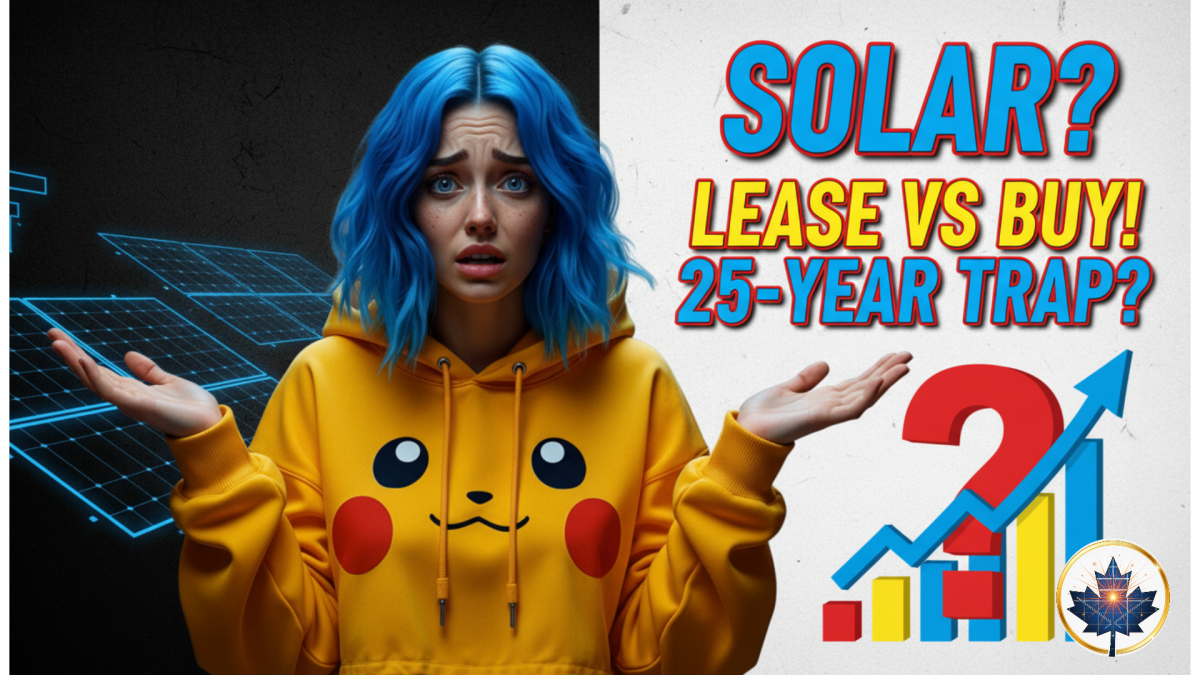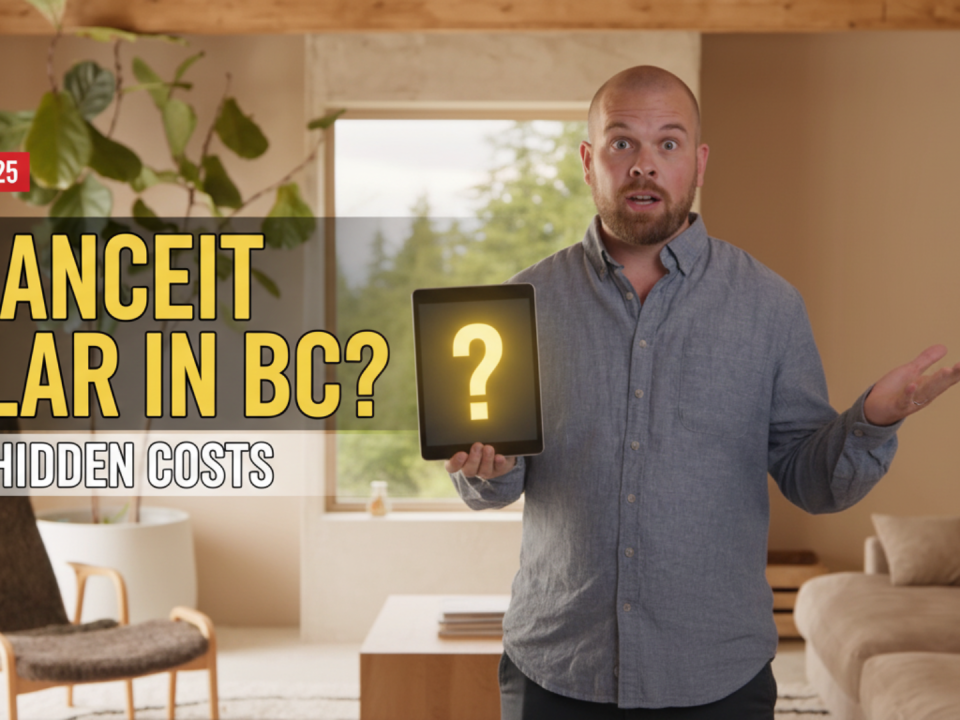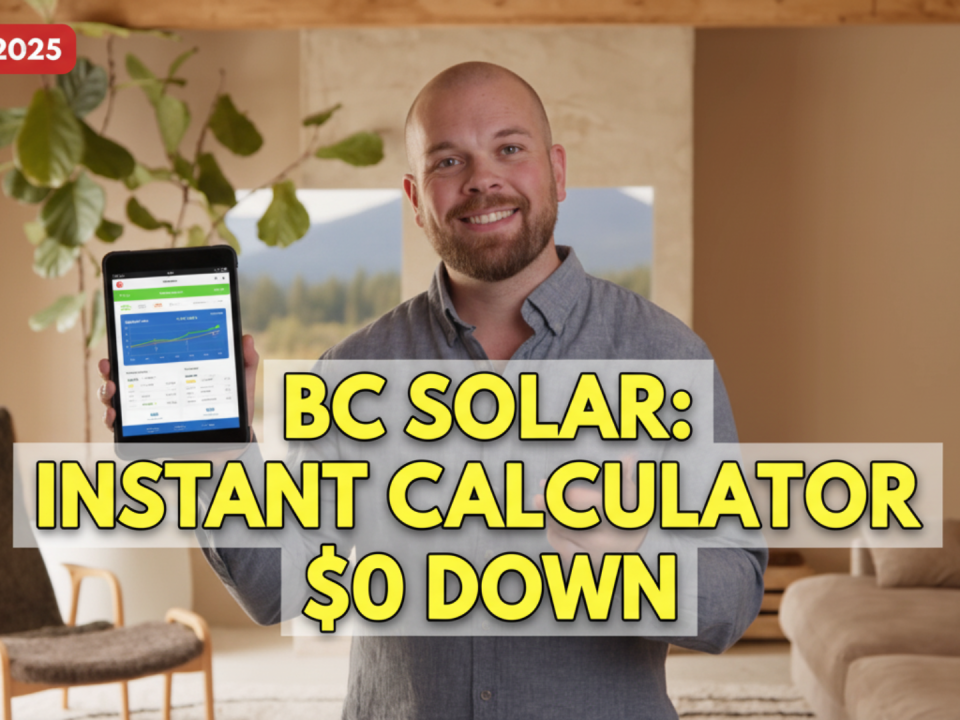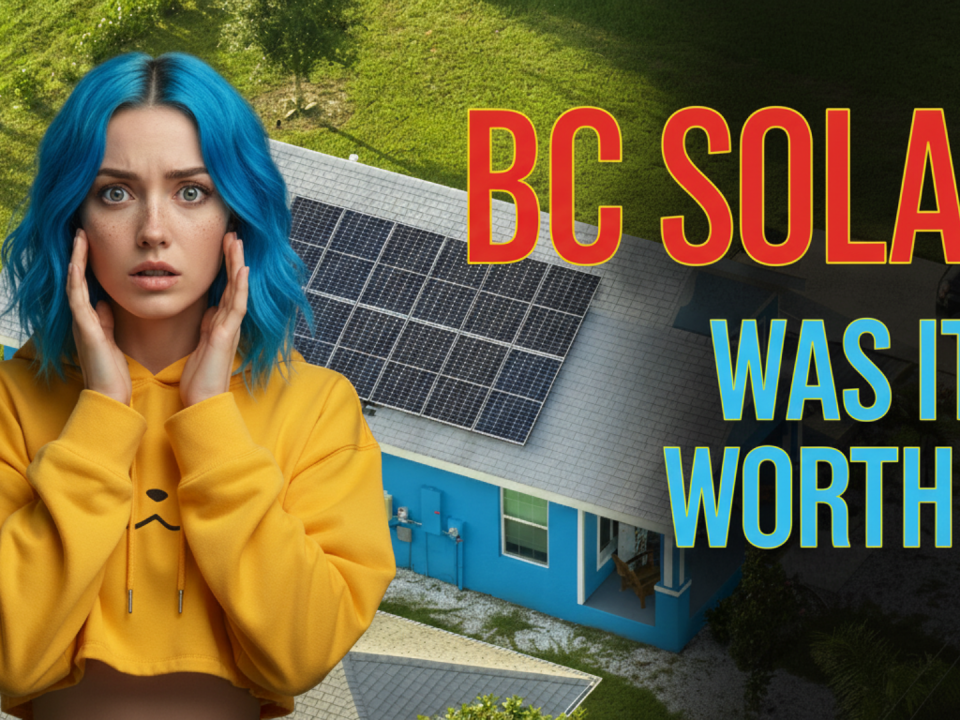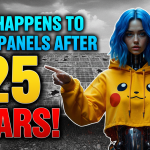
What Happens to Solar Panels After 25 Years And How to Prolong Their Lifespan
October 2, 2025How Much Does Solar Cost Victoria BC Calculator
October 10, 2025So, you’re thinking about solar panels. Good call. Your power bills are probably making you cringe, and you want to do something about it. I get it. I’m Vitaliy, and for the last 12 years, I’ve been elbows-deep in home improvement and solar energy at SolarEnergies.ca. My goal is simple: give you the straight goods so you can make a smart choice.
The biggest question is always “Should I buy or lease?” You’re getting hit with ads for “free solar panels”, and it’s designed to be confusing. Let’s be clear: some companies profit from that confusion. My job is to cut through that noise and show you the real costs, the actual benefits, and the potential headaches of both paths.
Buying Solar Panels: The Ownership Path
Buying solar panels is exactly what it sounds like. You purchase the system outright, and it becomes part of your home, just like a new furnace or roof. You own the power it produces and all the financial perks that come with it.
What are the upfront costs of buying solar panels?
Let’s talk numbers. The average complete solar system for a home in Canada can cost between $20,000 and $30,000 before any incentives. That’s a significant chunk of change, and it’s the biggest hurdle for most people.
But here’s the thing: you don’t necessarily need a pile of cash.
Financing Scenarios:
- Paying Cash: If you have the savings, this is the most straightforward path. You pay for the system and start seeing returns from day one without any loan payments eating into your savings. Your payback period will be the shortest.
- Provincial Programs & Financing: The federal Greener Homes program has closed for new applicants, which was a big shift. The good news? Many provinces have stepped up. For example, in British Columbia, the CleanBC Better Homes program offers significant rebates. When you combine solar panels with a battery storage system, you could see rebates reaching up to $10,000 in some cases, especially with municipal top-ups. This is where you need to do a bit of local research, but these provincial programs can slash your upfront cost dramatically.
- Company Financing (0% Down): Some of the big players offer their own financing. Polaron, for instance, is well-known for its 0% financing options. It works like a loan, but the interest is baked into the contract. It’s a great way to get started with no money down, but you need to read the fine print to understand the total cost over the term. For more on this, see our guide on how to finance your solar panels.
What are the ongoing costs when you buy solar panels?
Once the system is installed, your costs are minimal.
- Maintenance: Modern solar panels are incredibly durable. A 2021 study by the National Renewable Energy Laboratory (NREL) found that panels have a median degradation rate of just 0.5% per year. They can easily last 30 years or more while still producing over 80% of their original capacity. You might need an inverter replacement once in the system’s lifetime (around the 15-year mark), which could cost $1,500-$3,000.
- Insurance: You’ll need to add the system to your home insurance policy, which might increase your premium slightly.
What are the benefits of owning solar panels?
This is where buying really shines.
- You Get All the Incentives: The federal grant is gone, but the real action is at the provincial level now. As the system owner, you are the one who gets to claim these rebates. In places like Alberta or Ontario, this can be a game-changer. These grants go directly to you, cutting your net cost significantly and shortening your payback period.
- Massive Electricity Bill Savings: You are generating your own power. Depending on your system size and location, you can eliminate 50% to 100% of your electricity bill. With electricity rates climbing annually, your savings will grow every single year.
- Increased Home Value: This is a big one. Research from sources like the Appraisal Institute of Canada and U.S. studies consistently show that owned solar panels are a valuable upgrade that increases home value. Buyers see it as an asset, not a liability. A recent client of mine in Calgary sold their home for $20,000 over asking, and the buyer specifically cited the owned solar system as a key factor.
- You Earn Money: Through net metering programs, any excess electricity your panels produce is sent back to the grid, and your utility company credits your account.
Example Financials: Buying a 10 kW System in British Columbia
| Metric | Cost/Benefit | Notes |
|---|---|---|
| Gross Upfront Cost | $25,000 | Average market rate. |
| Provincial Rebate (e.g., CleanBC) | -$4,000 | Varies by province. BC has strong programs. Check your local incentives. |
| Net Cost | $21,000 | Your actual initial investment. |
| Annual Electricity Bill | $1,800 | BC Hydro rates, assuming an average bill of $150/month. |
| Annual Savings | ~$1,700 | Assuming the system covers most of your usage. |
| Payback Period | ~12 Years | $21,000 / $1,700 per year. Payback can be faster with battery rebates. |
| Lifetime Savings (25yr) | >$45,000 | This number grows as electricity rates rise. |
Tip for Buyers: Always get at least three quotes from different installers. Prices can vary, and you want to compare not just the cost but also the quality of the best solar panels in Canada and the warranties offered.
Leasing Solar Panels: The “Solar as a Service” Model
A solar lease is essentially a rental agreement. A company installs solar panels on your roof for little to no upfront cost. You then pay them a fixed monthly fee for the electricity the panels produce.
What are the advantages of a solar lease?
The main appeal is the low barrier to entry.
- Zero or Low Upfront Cost: This is the number one selling point. You can go solar without having to spend thousands of dollars.
- No Maintenance Worries: The leasing company owns the system, so they are responsible for all maintenance, repairs, and monitoring. If something breaks, they fix it.
- Predictable Monthly Payments: You often pay a fixed monthly rate that is lower than your current average electricity bill. This can give you immediate, albeit modest, savings.
What are the disadvantages of a solar lease?
Here’s where you need to pay close attention. The long-term picture is very different from buying.
- You Don’t Get the Incentives: The leasing company, as the system owner, claims all valuable provincial rebates. That potential rebate of several thousand dollars from a program like CleanBC? It goes to them, not you. They use it to subsidize their cost, but you never see that benefit on your bill.
- Lower Overall Savings: Your monthly lease payment plus any remaining utility bill might be less than your old bill, but your savings are capped. An owner saves the full value of the electricity produced. A leaser saves the difference between their old bill and their new (lease + utility) bill. Over 25 years, this difference is massive—often tens of thousands of dollars.
- Lease Escalators: Many lease agreements include an “escalator clause,” which increases your monthly payment by 1-3% each year. This can erode your savings over time, especially if electricity rates don’t rise as quickly.
- Selling Your Home Can Be a Nightmare: This is the biggest headache I see, and it can be a showstopper. To sell your home, the buyer must first be approved by the solar company to take over your 20-year lease. Many potential buyers—and their mortgage lenders—will walk away rather than inherit that kind of long-term financial obligation. I’ve personally seen home sales collapse right before closing because of a solar lease.
- No Impact on Home Value: Because you don’t own the system, it’s not considered an asset. Appraisers typically do not add any value to your home for leased panels. Some may even see it as a liability.
What happens at the end of the solar lease term?
At the end of a typical 20-25 year term, you have a few options:
- Renew the lease: Continue with a new agreement.
- Have the system removed: The company will remove the panels, potentially at a cost to you.
- Purchase the system: You can buy the panels at their “fair market value,” which is a depreciated price for a 20-year-old system.
Who Offers Solar Leases in Canada?
Honestly, true solar leases are becoming less common in Canada, partly because the financing options for buying have become so good. Some smaller regional companies might offer them, but the major national players have largely shifted focus.
- Sunrun: A massive player in the U.S. leasing market, they have a limited presence in Canada and are not a dominant force here.
- Grasshopper Solar: Has offered PPA (Power Purchase Agreement) models, which are similar to leases, where you pay per kWh of power produced.
- Local Installers: Some smaller, local companies may have leasing partners.
Most of the big Canadian companies like Polaron, Kuby Energy, and HES PV focus on selling systems, often with attractive financing that they market as an easy, low-cost way to get started. This is often confused with leasing.
Tip for Leasers: If you are considering a lease, demand to see a clear breakdown of the total cost over the entire 25-year term, including any escalator fees. Compare that total to the net cost of buying a system. The numbers will speak for themselves.
Head-to-Head: Buying vs. Leasing
| Feature | Buying Solar Panels | Leasing Solar Panels |
|---|---|---|
| Upfront Cost | High ($20k-$30k), but can be $0 with financing | Low to none ($0 typical) |
| Who Gets Incentives? | You (e.g., provincial rebates like BC’s) | The leasing company |
| Lifetime Financial Benefit | Very High (potential for $50,000+ in savings) | Modest (saves you a small amount monthly) |
| Home Value | Increases home value | No increase, can complicate a sale |
| Maintenance & Repairs | Your responsibility (covered by warranties for years) | Leasing company’s responsibility |
| Flexibility | Full control over your system | Locked into a 20-25 year contract |
| Who Owns It? | You | The leasing company |
The Verdict: Why Buying Is Almost Always the Better Choice in Canada
After a decade in this industry, my advice remains firm: if you can, buy your solar panels.
Even with the federal Greener Homes program closing, the math still heavily favours ownership. Strong provincial incentives, like those in British Columbia, combined with excellent financing options from installers, eliminate the main advantage of leasing (the low upfront cost). When you buy, you get the grants, you build equity in your home, and you achieve far greater long-term savings.
Leasing might seem tempting, especially if you have a tight budget or poor credit. But it’s a short-term solution with long-term consequences, especially when it comes to selling your home. The savings are just not significant enough to justify giving up ownership and the associated incentives.
Don’t let confusing marketing tactics sway you. Some companies might present a financing plan for a purchase in a way that sounds like a lease, focusing on “no money down” and a “low monthly payment.” Always ask the critical questions: “At the end of this agreement, who owns the panels?”
If the answer is you, it’s a purchase. If the answer is the company, it’s a lease. And in Canada, ownership is the path to real energy independence and financial freedom.

